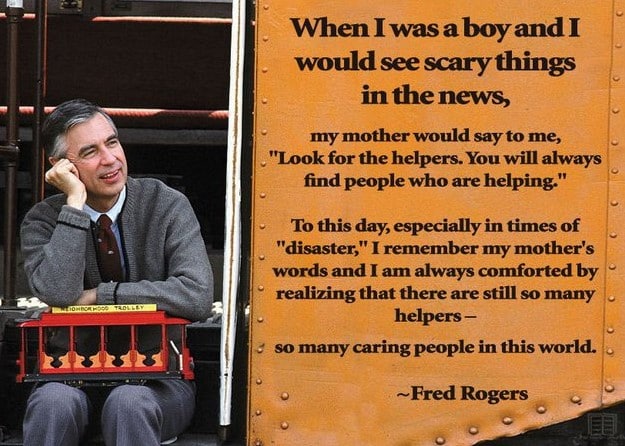Difficult Conversations
Difficult Conversations: Discussing Events in the News with your Children
Events continue to unfold in the United States, Israel, Ukraine, the Middle East, in Jewish communities around the world and in Europe that could affect adults and children. Images from the media, whispered conversations and street demonstrations will continue and perhaps cause heightened anxiety and confusion. War, terror, and violence are complex themes. For adults, these ideas may be discussed through the lenses of politics, ethics, affiliations, and economics. For young children, the most important lens is safety and security. And yet our children may also ask questions about their neighborhood, Israel and Jews around the world. It is important to unpack the issues, to work out the basic emotions of safety and security and then to explore some facts that are developmentally appropriate to children at different stages.
We know that some parents share information with children on these events and some do not.
The following tips are excerpted from a piece on terrorism from the American Psychological Association. The general recommendation is to assure children of the safety that the adults in their lives, at school and at home, are providing them.
Tips for helping children cope:
- Encourage children to say how they are feeling about the event.
- Ask children what they have seen, heard or experienced.
- Assure children that their parents and teachers are taking care of them and will continue to help them deal with anything that makes them feel afraid.
- Help children recognize when they have shown courage in meeting a new scary situation and accomplished a goal despite hardship or barriers. Instill a sense of empowerment.
- Let children know that institutions of democracy are still in place, and our government is intact. (It can also be helpful for adults to realize this.)
- Know that it is possible for children to experience vicariously the traumatization from the terrorist attack (e.g. watching TV coverage, overhearing adult conversations).
General guidelines for talking with young children
Nellie Gonzalez Cutler, managing editor of Time for Kids (TFK), makes the following suggestions:
“For preschool through second grade, TFK’s (Time Magazine for Kids) approach is hands-off…Young children should not be burdened with news they cannot begin to understand. There is plenty of time to learn that the world can be cruel.”
When addressing things young kids see in the news,
- Take your cue from your child. If he or she is unaware of a tragedy, do not bring it up.
- If your child asks a question, answer in a straightforward manner. Acknowledge that sometimes bad things happen.
- Allow your child to express how he or she feels.
- Offer reassurance. Let your child know that he or she is safe.
- Give positive examples of people who are performing heroic deeds or working to keep people safe.
- Let your child know that he or she can help others. Some ways include working on a project that thanks first responders or taking part in a school event that helps victims of a tragedy.
Ways to talk to children about tragic events
PBS Kids offers general guidance for talking to children of different age groups. These strategies are important to keep in mind, because “at every age and stage, children are affected by what’s happening in the news, whether parents share this information or shield them from it — because the news is everywhere.”
offers general guidance for talking to children of different age groups. These strategies are important to keep in mind, because “at every age and stage, children are affected by what’s happening in the news, whether parents share this information or shield them from it — because the news is everywhere.”
The Jewish Social Service Agency has suggested ways to talk to children about tragic events.
As adults, the issues are complex and layered. Remember that when the news makes you anxious, your children may catch that anxiety. Take a break from monitoring news on the media. But in digestible doses, you, too, should be able to explore the background of the conflict, share your cognitive and emotional responses with other adults, and take some concrete actions to help you feel grounded.
Additional resources:
- PJ Library’s How to Talk to Kids Guides
- Jewish Children’s Books That Address Difficult Topics (PJ Library)
- Videos to Help Parents and Kids Talk About Scary Situations (PJ Library)
- Tips for Talking to Children and Youth After Traumatic Events (US Department of Health and Human Services: Substance Abuse and Mental Health Services Administration)
- Helping Children Cope With Terrorism – Tips for Families and Educators (TThe National Association of School Psychologists (NASP))
- Helping Children Cope With Frightening News (Child Mind Institute)
Event-Specific Resources
Resources for families about Israel at War (updated October 2023):
- Resources for teaching about Israel in crisis (The Jewish Education Project)
- Federation’s Israel Crisis Relief page–with local events, updates, and ways to help (The Jewish Federation of Greater Washington)
- A compilation of resources from JKidPhilly
Links to sensitive “scripts” to talk with children about the crises in Israel:
- Your Kids Are Ready to Talk About Israel. Are You? (Kveller)
- For Parents: In The Face of the Current Situation In Israel (Jewish Education Center of Cleveland) (PDF)
- Talking to Your Children About the Situation in Israel (Jewish Baltimore Blog)
- Talking to Your Children About the Situation (iCenter.org)
Resources for families about elementary school shootings:
- Helping Children with Tragic Events in the News (PBS Kids for Parents)
- Talking with Children about Gun Violence and Mass Shootings (ADL)
- Helping Your Children Manage Distress in the Aftermath of a Shooting (American Psychological Association)
- How to Talk to Kids About School Shootings (Common Sense Media)
- 10 Strategies for Talking to Children About School Shootings (Psychology Today)
- Talking to Kids About Current Events (OnOurSleeves.org)
Resources for families about Ukraine:
- How to Talk To Your Kids and Teens About Ukraine and Russia (New York Times)
- What To Do if the Ukraine Crisis Is Weighing on You (Self-Care for Parents) (TheSkimm)
Resources for families about the refugee crisis:
- How to Explain the Refugee Crisis to Kids (Tablet Magazine)
- The PJ Library selection The Suitcase by Chris Naylor-Ballestero is also a wonderful, age-appropriate, and gentle introduction to discussing refugees and helping those who have had to leave their homes.
- Not sure how to address challenging societal issues with your children? This article introduces a children’s book about the Syrian refugee crisis and explores ways in which parents can translate the tough subjects. Learn how to best address the topics and share your values with your little one.
Links to sensitive “scripts” to talk with children about the specific situation in Las Vegas:
- What You Can Do After Las Vegas (Kveller)
Links to sensitive “scripts” to talk with children about the specific situation in France:
- Helping Children to Process the Terrorism in Paris (ReformJudaism.org)
- How to Talk to Your Kids About the Attacks in Paris (TIME.com)
- Statement Regarding the Attacks in Paris (NASP)
Resources compiled by PJ Library in Greater Washington.
